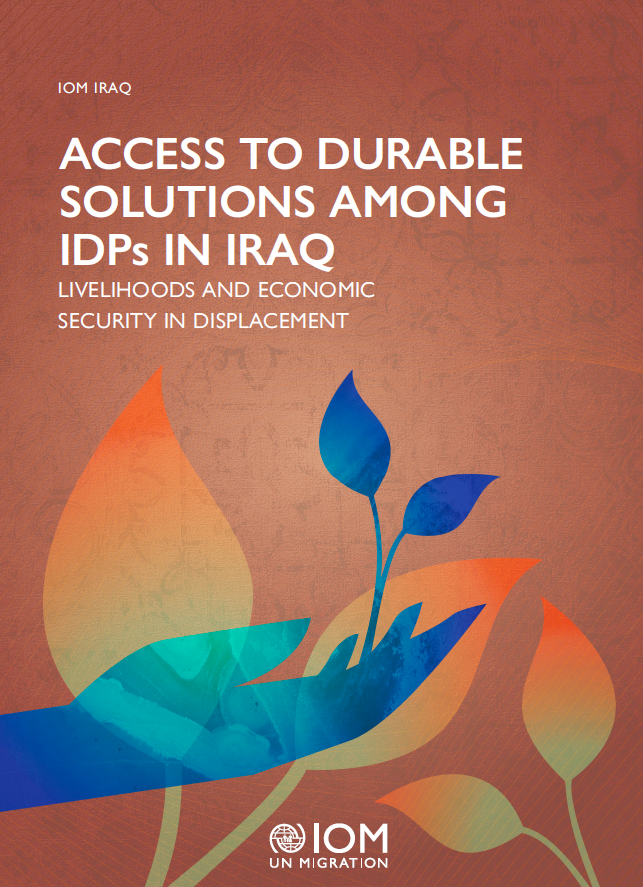ACCESS TO DURABLE SOLUTIONS AMONG IDPs IN IRAQ: LIVELIHOODS AND ECONOMIC SECURITY IN DISPLACEMENT
Access to Durable Solutions Among IDPs in Iraq: Livelihoods and Economic Security in Displacement focuses on IDPs and returnees’ opportunities for livelihoods, and its effects on their ability to make ends meet.
Overtime in displacement, livelihoods has become the main factor for the interviewed IDPs when consider returning to their places of origin. Without the infrastructure of a functioning economy and livelihood opportunities to return to, IDPs are choosing to stay in host communities where they see more economic security, even if tenuous or temporary. Nearly all IDP households in the non-camp population to which the study generalizes reported having an income from a job, but the plurality obtains it from the informal sector—one that provides little long-term security. IDPs often go into debt to make ends meet, prolonging the effects of their displacement. Families overall change their consumption patterns in displacement and larger IDP families (10 or more members) live below the UN Iraq-defined poverty line.
This report is part of a larger panel study on “Access to Durable Solutions Among IDPs in Iraq” implemented since December 2015 by IOM Iraq in partnership with Georgetown University. The study has followed 4,000 displaced families living outside of camps who were displaced by ISIL between January 2014 and December 2015 and displaced to Basra, Baghdad, Sulaymaniyah and Kirkuk.
